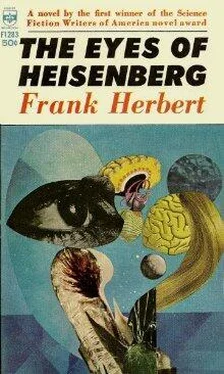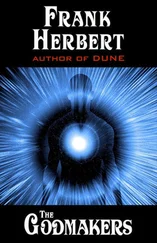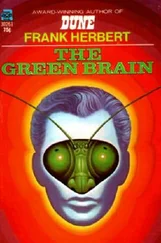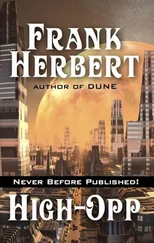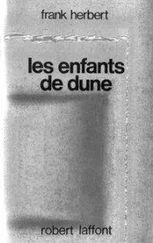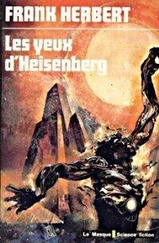“If it comes down to it, we don’t need any of them,” Calapine said.
“Destroy them all?” Nourse asked. “All the Folk?”
“And raise a new crop of dopplegangers,” she said. “Why not?”
“Duplicates don’t always come true,” Nourse said.
“Nothing limits us,” Schruille said.
“Our sun isn’t infinite,” Nourse said.
“We’ll solve that when the need arises,” Calapine said. “What problem can defy us? We’re not limited by time.”
“Yet we’re sterile,” Nourse said. “Our gametes refuse to unite.”
“And well they do,” Schruille said. “I’d not have it otherwise.”
“All we wish now is a simple vote,” Calapine said. “A simple vote on whether to capture and bring in one tiny band of criminals. Why should that arouse major debate?”
Nourse started to speak, thought better of it. He shook his head, looked from Calapine to Schruille.
“Well?” Schruille asked.
“I think this little band is the real issue,” Nourse said. “One Sterrie surgeon, two Cyborgs and two viables.”
“And Durant was ready to kill the Sterrie,” Schruille said.
“No.” It was Calapine. “He wasn’t ready to erase anyone.” She found herself suddenly interested in the train of Nourse’s reasoning. It was his logic and reason, after all, which had always attracted her.
Schruille, seeing her waver, said, “Calapine!”
“We all saw Durant’s emotions,” Nourse said. He waved at the instrument wall in front of him. “He would’ve killed no one. He was… educating Svengaard, talking to Svengaard with his hands.”
“As they do between themselves, he and his wife,” Calapine said. “Certainly!”
“You say we should raise a new crop of dopplegangers.” Nourse said. “Which seed shall we use? The occupants of Seatac, perhaps?”
“We could take the seed cells first,” Schruille said, and he wondered how he had been put so suddenly on the defensive. “I say let’s vote on it. Bring them here for full interrogation or destroy them.”
“No need,” Nourse said. “I’ve changed my mind. Bring them here… if you can.”
“Then it’s settled,” Schruille said. He rapped the signal into his throne arm. “You see, it’s really very simple.”
“Indeed?” Nourse said. “Then why do Calapine and I find ourselves suddenly reluctant to use violence? Why do we long for the old ways when Max shielded us from ourselves?”
The Hall of Counsel had not seen such a gathering since the debate over legalizing limited Cyborg experiments on their own kind some thirty thousand years before. The Optimen occupied a rainbow splashing of multicolored cushions on the banks of plasmeld benches. Some appeared nude, but most out of awareness of such a gathering’s traditional nature came clothed in garments of their immediate historical whims. There were togas, kilts, gowns and ruffs, three-cornered hats and derbies, G-strings and muu-muus, fabrics and styles reaching back into pre-history.
Those who could not jam into the hall watched through half-a-million scanner eyes that glittered around the upper line of the walls.
It was barely daylight over Central, but not an Optiman slept.
The Survey Globe had been moved aside and the Tuyere occupied a position on the front bench center at the end of the hall. The prisoners had been brought in on a pneumoflot tumbril by acolytes. They sat on the tumbril’s flat surface immobilized within dull blue plasmeld plastrons that permitted only the shallowest of breaths.
As she looked down on them from her bench, seeing the five figures so rigidly repressed, Calapine permitted herself a faint pity for them. The woman—such terror in her eyes. The rage in Harvey Durant’s face. The resigned waiting in Glisson and Boumour. And Svengaard—a look of wary awakening.
Yet Calapine felt something was missing here. She couldn’t name the missing thing, felt it only as a negative blankness within herself.
Nourse is right, she thought. These five are important.
Some Optiman up near the front of the hall had brought a tinkle-player and its little bell music could be heard above the murmurous whispering of the throng in the hall. The sound appeared to grow louder as the Optimen quieted in anticipation. The tinkle-player was stilled in mid-melody.
It grew quieter and quieter in the hall.
Despite her fear, Lizbeth stared around her in the growing silence. She had never before seen an Optiman in the flesh—only on the screens of the public announcement system. (In her lifetime it’d been mostly the members of the Tuyere, although older Folk mentioned the Kagiss trio preceding them.) They looked so varied and colorful—and so distant. She had the demoralizing feeling that nothing of this moment had happened by chance, that there was a terrifying symmetry in being here, now with this company.
“They are completely immobilized,” Schruille said. “There’s nothing to fear.”
“Yet they are terrified,” Nourse said. And he recalled suddenly a moment out of his youth. He’d been taken to an antiquary’s home, one of the Hedonists proudly displaying his plasmeld copies of lost statues. There’d been a giant fish, one headless figure on a horse (very daring, that), a hooded monk and a man and woman clasped in a mutual embrace of terror. The man and woman, he realized now, had been recalled by the faces of Lizbeth and Harvey Durant.
They are, in a way, our parents, Nourse thought. We spring from the Folk.
Calapine realized abruptly what it was she missed here. There was no Max. He was gone, she knew, and she wondered momentarily what had happened to him. Outgrew his usefulness, she decided. The new Max must not be ready yet.
Odd that Max should go just like that, she thought. But the lives of the Folk were like gossamer. One day you saw them; the next day you saw through the place where they had been. I must ask what happened to Max. But she knew she wouldn’t ever get around to that. The answer might require a disgusting word, a concept where even euphemisms would be repellent.
“Pay particular attention to the Cyborg Glisson,” Schruille said. “Isn’t it strange that our instruments reflect no emotions from him?”
“Perhaps he has no emotions,” Calapine said.
“Hah!” Schruille barked. “Very good.”
“I don’t trust him,” Nourse said. “My grandsire spoke of Cyborg tricks.”
“He’s virtually a robot,” Schruille said. “Programed to respond with the closest precise answer to preserve his being. His present docility is interesting.”
“Isn’t it our purpose to interrogate them?” Nourse asked.
“In a moment,” Schruille said. “We will peel them down to the raw brain and open their memories to our examination. First, it is well to study them.”
“You’re so callous, Schruille,” Calapine said.
A murmurous agreement spread upward through the hall.
Schruille glanced at her. Calapine’s voice had sounded so strange then. He found himself filled with a sudden disquiet.
Glisson’s Cyborg eyes moved, heavy-lidded, coldly probing, glistening with their lensed alterations that expanded his spectrum of visibility.
“Do you see it, Durant?” he asked, his voice chopped into bits by the necessity of short breaths.
Harvey found his voice. “I… can’t… believe… it.”
“They are talking,” Calapine said, her voice bright. She looked at the Durant male, surprised a look of loathing and pity in his eyes.
Pity? she wondered.
A glance at the tiny repeater bracelet on her wrist, confirmed the assessment of the Survey Globe. Pity. Pity! How dare he pity me!
Читать дальше
